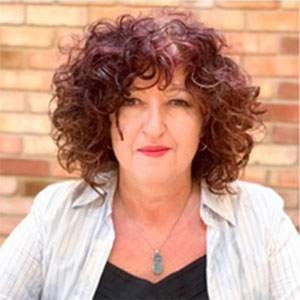
Ani de la Prida
Country: …
Organization: …
Short CV
Ani de la Prida is a psychotherapist and creative arts counsellor who brings a creative, person-centred, pluralistic approach to her work. She is passionate about creative methods in therapy and has experience working with groups, adults, children, and young people in a wide range of settings. Ani founded the Association for Person Centred Creative Arts (APCCA) where she is course director. Ani has taught at various universities including Roehampton and the University of East London, where she did her masters research on the use of digital media in therapy. Published work includes; Person Centred Creative Arts Therapies in The Handbook of Person-Centred Psychotherapy and Counselling 3rd ed. (due 2023), Demedicalised counselling and psychotherapy with children and young people in People not pathology: freeing therapy from the medical model (2023) What Works in Counselling and Psychotherapy Relationships (BACP, 2020), and The Pluralistic Therapy Primer (2021).
Short presentation (30 minutes)
(together with: Kyriaki Kentigkeleni)
Title: Sharing our learning of how digital technology can promote polyphony, creativity, and learning on a person-centred creative art in therapy course
Polyphony is a concept that acknowledges multiple voices or perspectives that co-exist without any one voice being superior. In person-centred learning polyphony is valued. It can promote creative relational processes and dialogue that foster a dynamic co-construction of knowledge and ideas between group members. On our course at APCCA we use a peer assessment model devised by Liesl Silverstone, in consultation with Carl Rogers. In this model students are responsible for collaboratively contracting, devising some of the course requirement and assessing each other’s portfolios. Learning, meaning, and creativity are developed in the tensions, interactions and dialogue between different, and often opposing ideas and voices.
In 2020 we were thrust into a changing world of online therapy and online learning. This posed many challenges for training and working with creative arts in therapy. We had to adapt. Digital technology and online environments can sometimes be seen as an inferior learning environment to a more traditional in -person communication and settings. But what we learned was that the unique properties of digital technology can promote, enhance and deepen polyphony, creativity, and learning on a person-centred course. We found that digital media can be a helpful tool that promotes learning in new and unexpected ways. The possibilities for use of digital media are diverse and opens exciting new educational dimensions. In this presentation we would like to share some of what we have learned and discovered with our students about the value of digital technology in person-centred training.

